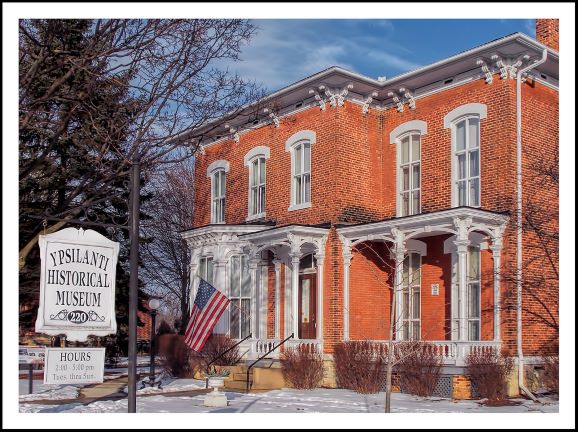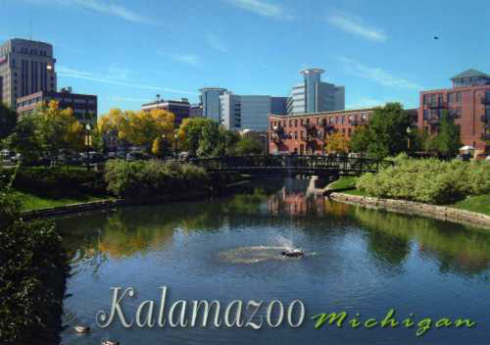Some Michigan Place Names
Once, while on the west coast, I said something in conversation about the City of Kalamazoo. The incredulous response I received from a Californian: ”Is there really a city named ‘Kalamazoo’”?
For some reason, I thought about this recently and wondered how certain places received their names. Many Michigan cities are obviously named after individuals – like Jackson, Houghton, Hancock, Monroe, Pontiac, Marquette, Warren and Cadillac.
Others are descriptive of their location – such as Midland, Bay City, Grand Rapids, Iron Mountain and Port Huron. Still others are named after places further east – Holland, Birmingham, Farmington and Plymouth come to mind.
Which brings us back to the original question about the naming of Kalamazoo. Actually, the town was originally called Bronson after one of the first settlers, Titus Bronson (sort of like Jebediah Springfield). Bronson was later convicted of stealing a cherry tree, so the villagers decided to change the name of the town. Otherwise it would be a 19th Century version of “Martha Stewartville”.
The name chosen by the villagers comes from the Potawatomi expression Kikalemozoo, meaning “the rapids at the river crossing”. The Native American name was Anglicized a bit and became Kalamazoo. The name was in use as the village name by the time of Michigan statehood in 1837.

How about Mt. Pleasant? Locals have been heard to say that Mt. Pleasant neither has a mountain nor is pleasant. The name, evidently, was chosen as a marketing tool. The land on which Mt. Pleasant now sits was purchased by David Ward in 1855. He logged off the site for a while but needed to come up with a use for the land once the timber was gone.
He decided to subdivide it and sell off the lots. He obviously needed a catchy name in order to attract buyers. Modern day developers do the same thing, and dream up names like “Hidden Valley” and “Rambling Brook”. The name Ward came up with was Mt. Pleasant.

Ypsilanti was not a marketing name or a Native American expression. General Demetrius Ypsilanti was a Greek patriot and hero who fought in the Greek war of independence against Turkey in the early 19th Century.
The first settlement in Washtenaw County was called Woodruff’s Grove, named after the proprietor of the trading post. A few years later, surveyors mapped out a road from Detroit to Chicago, to be known as the Chicago Road. The surveyors generally followed the Sauk Indian Trail, which crossed the Huron River about a mile north of Woodruff’s Grove. When a fire destroyed the school at Woodruff’s Grove, the settlers decided to move the town a few miles to the junction of the Chicago Road and the Huron River.
What does this have to do with Demetrius Ypsilanti? Nothing, except that the locals needed to come up with a name for their relocated town. They admired the Greek general and, hence, Ypsilanti, Michigan.
P.S. How does one pronounce Ypsilanti? Actually I’ve heard it many, many ways. Most folks, including the locals, pronounce the Y as if it were an I – thus the first syllable is IP. I do from time to time hear people use the Y, so the first syllable comes out as YIP, but those people aren’t from around here.
The second syllable sounds like SUH (rhyming with DUH). The emphasis is on the third syllable, LAN, although I’ve often heard emphasis on the first syllable (IP) as well as on the third. The final syllable is TEE.
And so, the pronunciation (at least the most common here) is ip-suh-LAN-tee. Most people, though, just call it Ypsi (IP-see).
